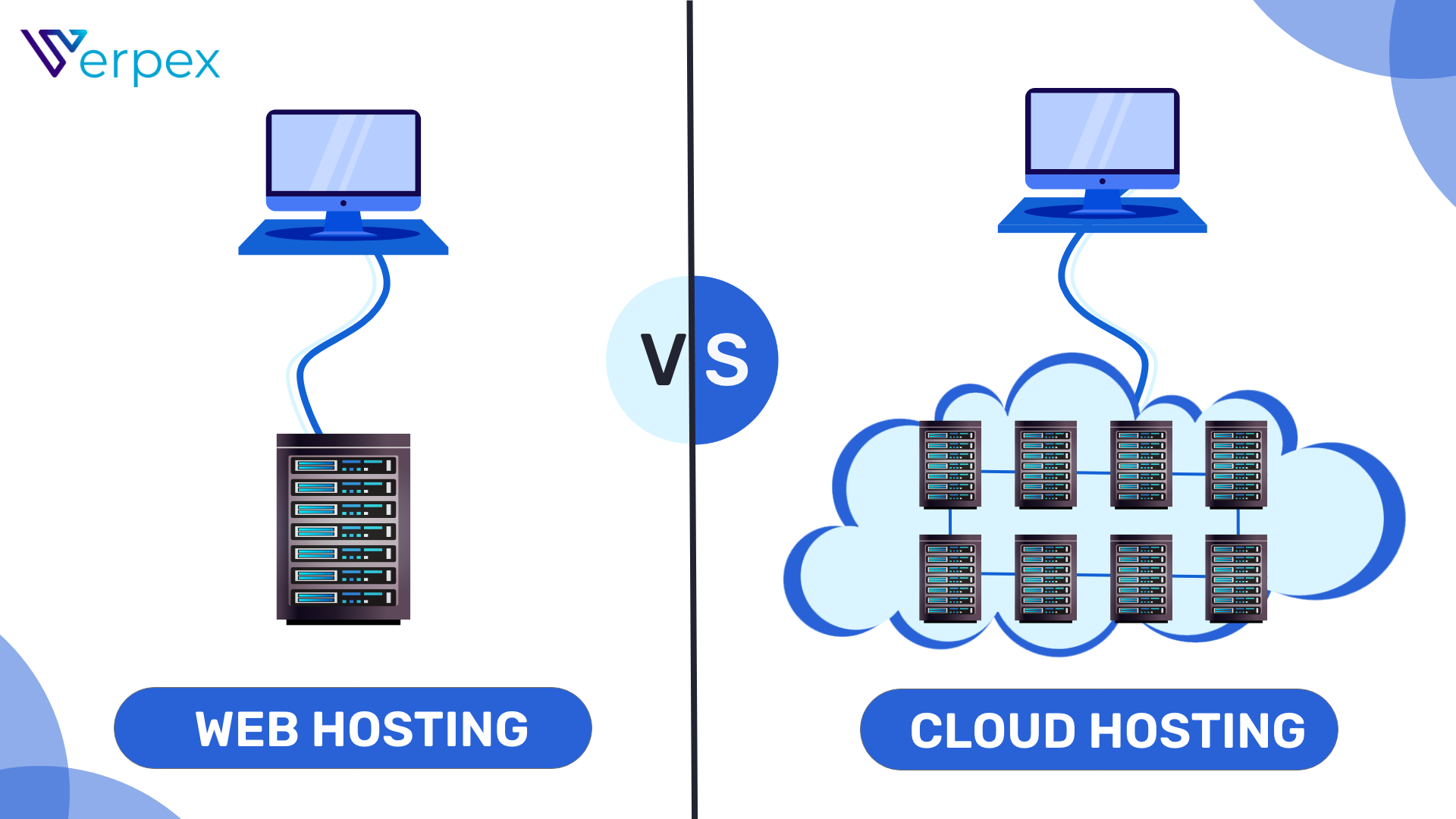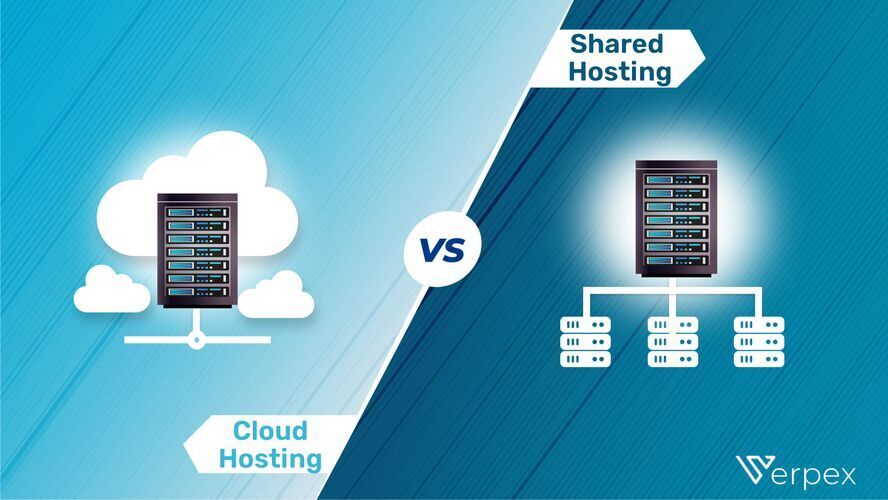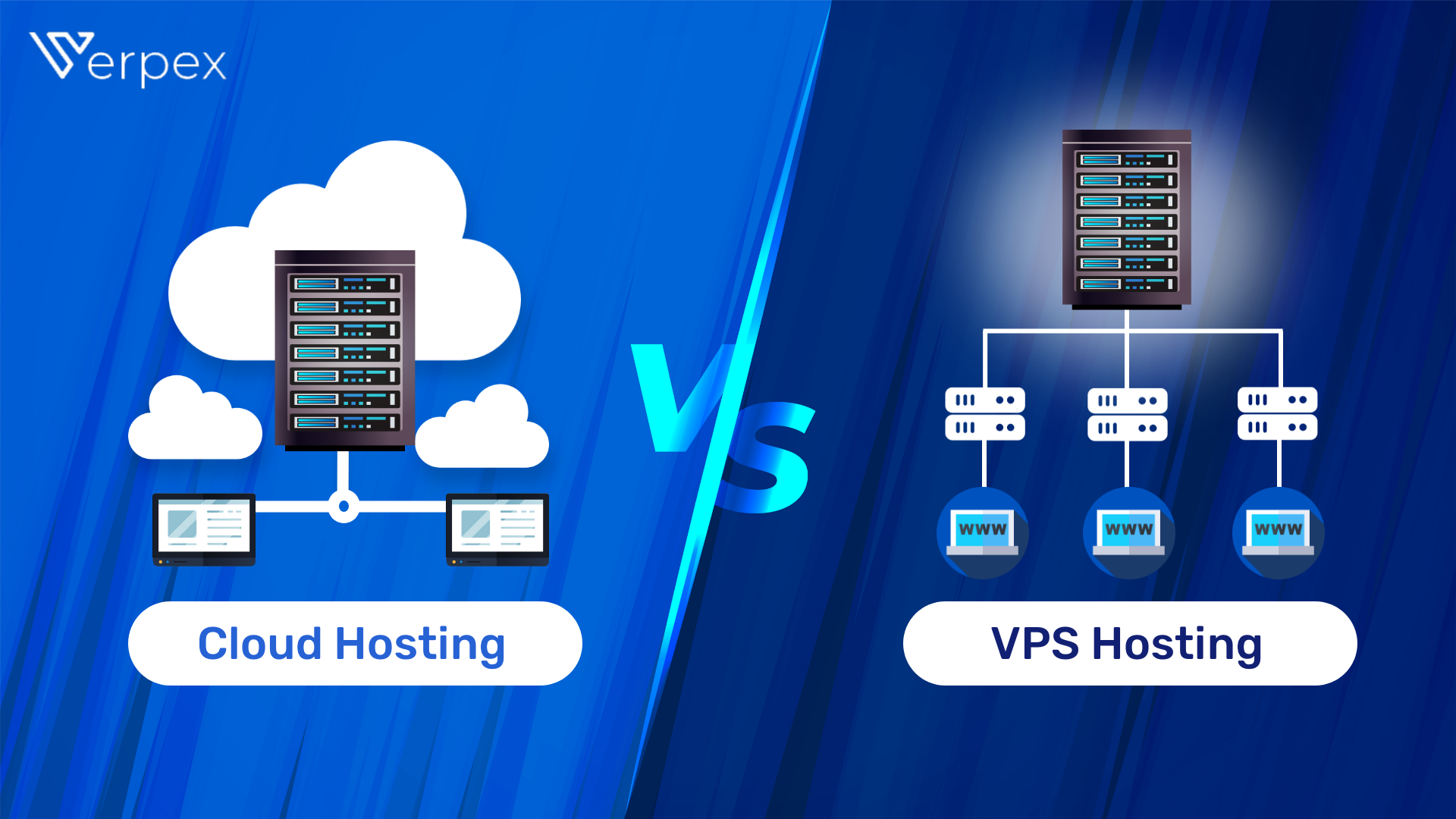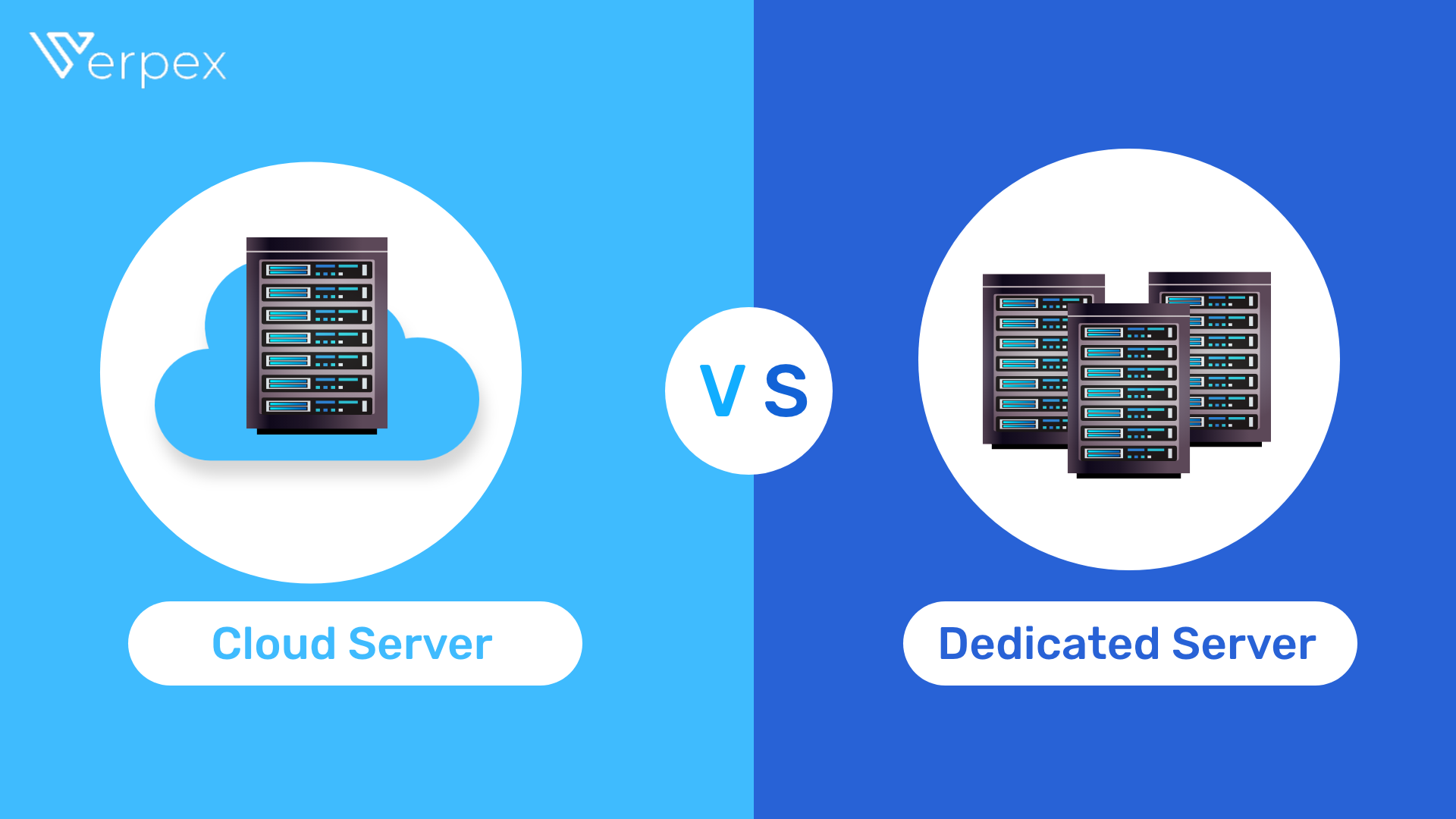It's frustrating when your website runs slowly due to other sites overusing the resources on your shared server.
Cloud hosting solves this by distributing resources over multiple servers, ensuring your site stays efficient and scalable at a reasonable cost, even when resources are in high demand.
This article will explain everything about cloud hosting - what cloud hosting is, the different types, and how it can help your business.
Understanding Cloud Hosting: What It Is and How It Works

Cloud hosting are hosting solutions that use software to split one physical server into multiple virtual servers, which together form a network to host a website.
This process, known as virtualization, creates VMs or virtual machines for efficient hosting.
Cloud Hosting services provide more flexibility and reliability by using its network of servers, eliminating downtime from hardware failures.
Unlike traditional hosting with limited bandwidth, cloud hosting allows easy scaling to meet changing bandwidth needs.
You can read more in our article “what is Cloud Hosting”
Who Should Consider Using Cloud Hosting?
If you expect growth and need more than shared hosting
Website owners with growing sites that exceed their current shared hosting resources can greatly benefit from a cloud hosting plan.
If your site's popularity strains your shared server's capacity, it's time to consider an alternative solution.
If you need powerful processing for high-traffic volume
If your site is slow, you might need more power.
Dedicated hosting gives you a private server, ensuring high traffic won't slow your site.
However, it requires technical knowledge and costs more.
If you are looking for a scalable and cost-effective solution
Cloud hosting offers a scalable solution that adjusts to your needs.
You pay only for the resources you use, making it cost-effective, especially during traffic spikes. And you don't need much technical knowledge to start.
Benefits of Choosing Cloud Hosting

Scalability
When you choose cloud hosting, you can quickly adjust resources like RAM and CPU to handle traffic spikes without upgrading your entire package.
Cloud hosting scalability ensures your site runs efficiently, letting you focus on your business without worrying about hosting issues.
Automatic Data Backups
Cloud hosting offers robust disaster recovery with automatic backups duplicated across interconnected servers.
This ensures your data is safe from both man-made and natural disasters — floods, hurricanes, or tornadoes.
Group Collaboration
With local systems, access to applications and data is often restricted by time and place.
Cloud services remove these barriers, providing 24/7 access from anywhere. This boosts productivity and allows employees to work on the same files or applications from different locations worldwide.
Reliable Infrastructure
Cloud computing isolates your website from physical server problems, ensuring no downtime even during issues, with benefits like:
- Protection from system overload, hardware failure, and hacking
- Option to switch to another server's resources if needed
- Continuous uptime for your site, regardless of server problems
Always-on Accessibility
With an internet connection, you can access and update your data from anywhere, making it easy for clients, partners, and employees to collaborate remotely.
Up-to-Date Cloud Technology
Cloud hosting keeps your business ahead with the latest technology.
It allows automatic integration of software applications tailored to your business needs, including processing power, server upgrades, and software updates.
Not Tied to a Single Physical Server

Using a single server raises the risk of downtime and hardware issues.
Cloud hosting servers with multiple data centers reduces downtime risks and quickly switches to backups if needed.
Peace of mind
With cloud website hosting, you partner with a provider that ensures your business focuses on operations, offering:
- Service and customer support
- Assistance for technical issues
- Access to a specialized and trained team for help
Superior Performance
Cloud-based web hosting delivers blazing-fast speeds and top-notch performance.
It achieves this by distributing the workload across multiple servers, reducing strain on individual server resources.
Cost Savings
Cloud hosting companies charge you based on your resource consumption.
You can stop paying when you no longer need them, aligning costs with actual usage. While not the cheapest, its features make it cost-effective.
Eco-friendly
Cloud hosting is a top eco-friendly hosting solution.
It's efficient, using only the needed server resources, and reducing data center usage. This reduces environmental impact compared to alternatives.
Simple scaling and management
Running a cloud server now requires no technical expertise, thanks to modern advancements:
Cloud servers once needed technical know-how for efficient management and scaling.
Current systems feature user-friendly dashboards for easy scaling and monitoring.
These improvements make server management straightforward, even for novices.
Cloud Hosting Vs. Other Hosting
Cloud hosting vs. web hosting
Traditional web hosting limits your site to one server. Cloud hosting spreads your site's resources across multiple virtual servers for better performance and reliability.


Cloud hosting vs. shared hosting
Shared hosting is less powerful than cloud hosting but works for small websites or online stores. Multiple sites share resources on one server, limiting its traffic capacity.
Cloud hosting vs. VPS
VPS combines aspects of shared and dedicated hosting with virtualization like cloud hosting. While cloud is for scalability, VPS offers more power, control, and customization options.


Cloud hosting vs. dedicated server
Cloud hosting allows scalable resources through hardware virtualization. dedicated serverS provide fixed SSD/HDD storage, CPU, and RAM for security and performance.
Customization Options in Cloud Hosting
Cloud hosting adapts to your business needs with its customizable options.
Here's how you can customize:
- Choose resources: Select specific CPU, RAM, and storage.
- Pick your system: Decide on the operating system and software.
- Modify architecture: Adjust network setup and security protocols.
- Deploy applications: Introduce custom or specialized applications.
Cloud Hosting Certifications: What You Need to Know
Understanding cloud hosting certifications is crucial for ensuring your provider meets industry standards.
Here's what to keep in mind:
- Certifications show a provider's commitment to security and best practices.
- Common Certifications: Look for key certifications like ISO 27001, SOC 2, and PCI DSS.
- Security Management: Certifications ensure strict security protocols are in place.
- Data Protection: They guarantee high standards for data safety and privacy.
- Service Quality: Certifications often indicate a higher level of service reliability.
The Future of Mobile Apps with Cloud Hosting
Cloud hosting is revolutionizing the mobile app landscape, offering enhanced performance, scalability, and functionality.
Here's how it's shaping the future:
Seamless Scalability
Cloud hosting allows apps to handle growing user bases effortlessly, ensuring smooth performance during demand spikes.
Enhanced Data Security
Secure cloud storage and advanced encryption protect sensitive user data, fostering trust and compliance.
Real-time Data Sync
Users enjoy updated information across devices, thanks to cloud-hosted databases that sync in real-time.
Reduced Development Time
Developers can leverage cloud tools and services to speed up app creation and deployment, bringing innovations to market faster.
Cost-Effective Operations
With pay-as-you-go models, app owners save on upfront infrastructure costs and only pay for the resources they use.
Takeaway
Technology and its adoption are advancing rapidly, with five billion people now online. Staying updated is crucial.
Cloud hosting, a significant innovation of the last decade, offers scalable, versatile, and cost-effective solutions.
While benefits vary per business, it's particularly valuable for website owners needing performance, control, and scalability at a reasonable cost.
Frequently Asked Questions
How much does web hosting cost?
Comparing prices is usually simple in other industries. However, when it comes to web hosting, it can be quite confusing since when you’re comparing the prices, you need to consider all of the features that the plans offer and compare them as well. The cost of web hosting varies depending on the plan you get and the web hosting provider you get it from, so make sure that you have a good understanding of the structure of pricing.
Do I need technical knowledge to use cloud hosting?
Not necessarily. Under a fully managed hosting package Verpex will take care of all the technical aspects for you.
How many websites can I host in the cloud?
Our cloud hosting packages allow up to 10 websites to be hosted simultaneously.
Why should I try a managed cloud server?
We’d highly recommend using a managed service, especially if you don’t have the technical skills to run a website. It might cost a little extra, but it certainly takes the stress out of site management.
Is cloud hosting beneficial for small businesses?
Yes. It offers scalability to handle growth, cost-effectiveness by paying only for what you use, and improved reliability with minimal downtime.
What are the benefits of cloud hosting vs on premise?
In-house servers give more control over data, suiting strict security needs. Cloud providers offer advanced security, but control is shared with them.

I've been navigating the web hosting waters for years now. As the Chief Editor at Verpex, I team up with some awesome writers to dish out the good stuff on hosting. Got a Master's in Journalism, so I always have an eye out for quality. Whether you're just dipping your toes or you're a seasoned surfer, I'm here to make everything web hosting feel like a breeze
View all posts by Julia Lozanov



















